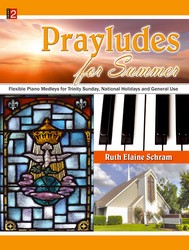612
LORD, Who May Dwell Within Your House
Copyright Information
- Text Copyright
- © 1986 Christopher L. Webber
- Tune Copyright
- Public Domain
- Reprint/Projection Information
- Words: Please contact the copyright holder for permission.
- Music: The Music is in the Public Domain; you do not need permission to project or reprint the Music.
Scripture References
Confessions and Statements of Faith References
Further Reflections on Confessions and Statements of Faith References
The gospel calls sinners to forsake their sin and turn to Jesus Christ in repentance that they may be forgiven. Our Song of Hope, stanza 16 says, “The Holy Spirit sends the church to call sinners to repentance, to proclaim the good news that Jesus is personal Savior and Lord.” The Canons of Dort, III-IV, 8 assures: “All who are called by the gospel are called earnestly. For urgently and most genuinely God makes known in the Word what is pleasuring to him: that those who are called should come to God.”
Since it is uniquely the work and passion of the Holy Spirit, who is “our Sanctifier by living in our hearts” (Belgic Confession, Article 9) and “by the work of the Holy Spirit [God] regenerates us and makes us new creatures, causing us to live new life and freeing us from the slavery of sin” (Belgic Confession, Article 24), we plead for his power to continue this work. The Holy Spirit restores us into God’s image “so that with our whole lives we may show that we are thankful to God for his benefits, so that he may be praised through us...” (Heidelberg Catechism, Lord’s Day 32, Question and Answer 86). We come to know, therefore, that our growth in holy living will not occur without the Holy Spirit’s ministry.

You can view this hymn by purchasing it in our Lift Up Your Hearts mobile app.


Due to copyright restrictions,
we cannot display this hymn on our website or provide printable copies of it.


 My Starred Hymns
My Starred Hymns







